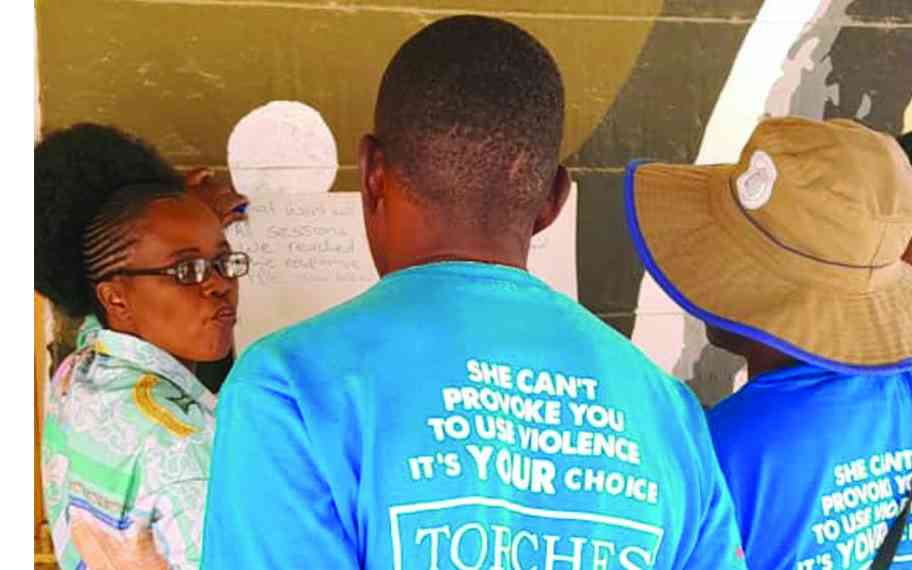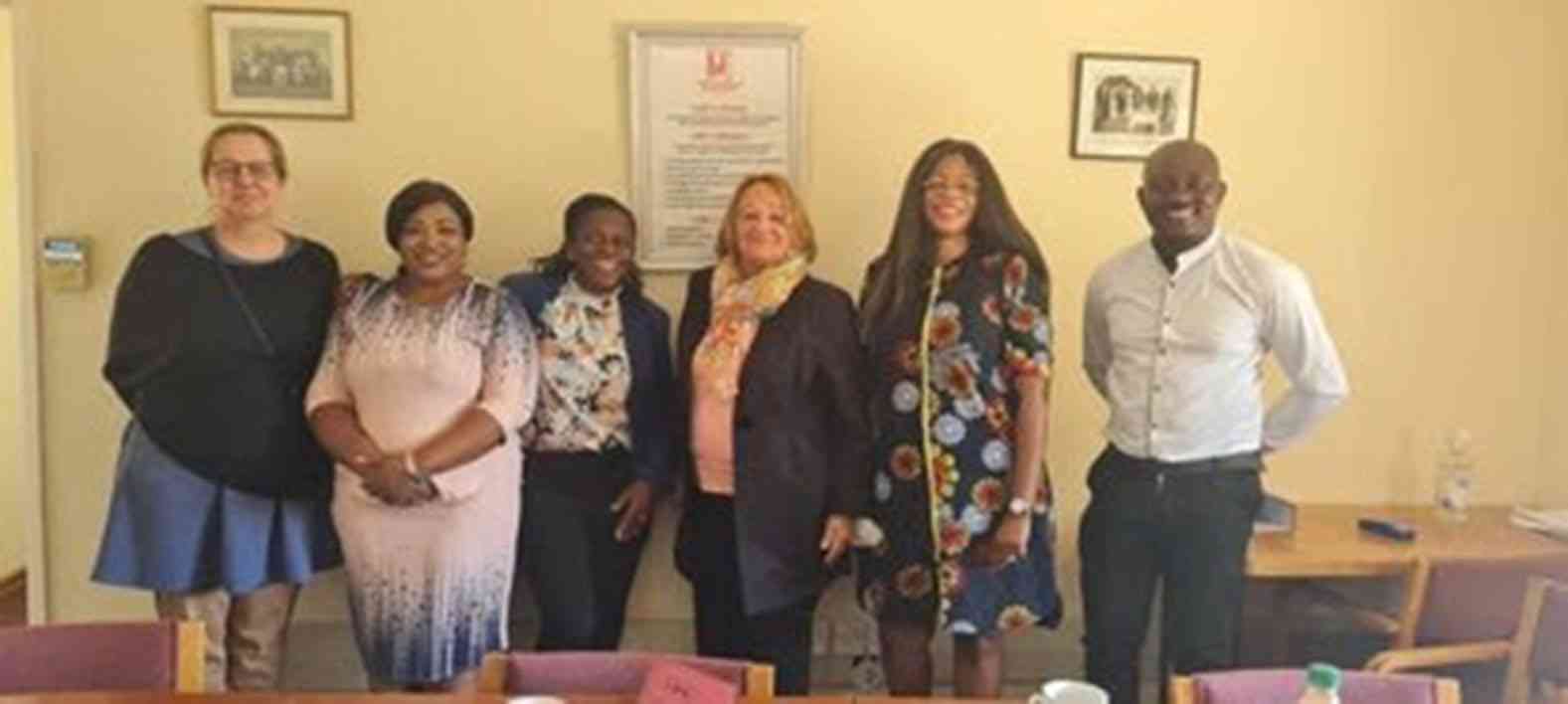
The Zimbabwe chapter of the Forum for African Women Educationalists (Fawezi) is spearheading the Towards Resilient Communities with Health, Equity and Safety (Torches) project in partnership with its partners and stakeholders. The primary goal of the project is to foster safer and more equitable communities by empowering women and girls while amplifying their voices.
The project took off last year when Fawezi conducted the SASA! Together Support Phase in the districts of Shamva and Chitungwiza. It is driven by two main models, namely SASA! (Start, Awareness, Support and Action) Together, a four-phased community-oriented programme that focuses on addressing and preventing violence against women and girls through open dialogue, awareness campaigns, support for survivors and collective community action.
The second model is “Tuseme”, a Swahili word that means “let’s speak out”. In Zengeza, Harare, this methodology involves five schools mainly Chaminuka and Tafadzwa primary schools as well as Seke 3, Seke Mhuri Imwe and Seke 5 high schools.
It aims to empower young individuals, enabling them to confidently voice their opinions and concerns.
According to Torches project officer Rujeko Chibaya, between April and December last year 2 957 girls, 1 972 boys, 34 girls and 27 boys living with disabilities from the mentioned schools were engaged through Tuseme clubs.
Throughout the support phase of SASA! Together conducted in wards 10 and 18 in Zengeza, Fawezi managed to engage with a total of 5 843 people comprising 1 539 men, 575 boys, 85 males living with disabilities, 2 710 women, 1 019 girls and 90 females living with disabilities.
“Some of the statistics are yet to be available, for now, we are compiling statistics for this quarter that we are in now,” Chibaya told attendees who had gathered to commemorate the successful completion of the support phase last Tuesday at Chitungwiza Publicity Hall in Zengeza.
The organisation unveiled the first of its two close-out workshops first in Chitungwiza and then engaged the community in Shamva on Wednesday.
- I will bring back sanity to Gure: Mujambawaya
- Sikhala’s 8th freedom bid flops
- Zimbabweans need to help themselves by getting rid of tyranny
- Sikhala's wife Ellen found guilty of reckless driving
Keep Reading
Government representatives from the ministries of Women’s Affairs, Community, Small and Medium Enterprises Development, Youth Empowerment, Development and Vocational Training, Sport, Recreation, Arts and Culture as well as members of the Victim Friendly Unit (VFU) and residents of Zengeza wards 10 and 18 were present.
The purpose of the Chitungwiza and Shamva workshops was to evaluate the successes and challenges as well as recommendations recorded by community rapporteurs which include institution allies, teachers, community champions, leaders and mentors who through the Torches project engaged with residents from wards 10 and 18 in Zengeza as well as communities in Shamva district as a way of preventing violence against women and girls, including persons with disabilities.
The non-governmental organisation was established in 1998 to address gender disparities in education and promote educational opportunities for girls and women. It is an affiliate of the Forum for African Women Educationalists (FAWE), a pan-African non-governmental organisation based in Nairobi, Kenya.
Community champions observed that there is now acceptance within the community in some sections of the communities they have visited, particularly among males who now recognise that domestic abuse is wrong, though some felt the campaign favored women.
It was also noted that a lot of people were still not yet opening up regarding issues related to GBV.
Some of the successes noted were that a lot of women and girls were now aware of referral pathways such as the Social Welfare Department, the Victim Friendly Unit and the Ministry of Women's Affairs where they can make reports.
Some of the challenges faced by implementers include transportation, lack of volunteer incentives as well as awareness tools such as community posters and flyers for each program.
In general, it was observed that the community expressed requests for Fawezi to carry on with the SASA! Together initiative. They also observed that although cultural norms and beliefs continue to be a barrier for women, the number of occurrences of gender-based violence was declining.
Currently, Fawezi is spearheading the Torches project in three districts namely Shamva, Chitungwiza and Nyanga. It is supported by Action Aid Zimbabwe (AAZ), Family Aids Caring Trust (FACT), and Leonard Cheshire Disability Zimbabwe (LCDZ). The project is funded by the players of the Peoples Postcode Lottery (PPL) through Action Aid UK.
Chibaya stated that since GBV is a problem that impacts everyone, it will be necessary, given available resources, to extend the project to other districts of Zimbabwe.
In Nyanga, similar approaches have been adopted using the Tuseme club model. Children living with disabilities have been assisted with assistive devices by Leonard Cheshire Disability Zimbabwe.
At Sanhani Primary School, disability-friendly toilets with ramps have also been constructed. Additionally, sanitary wear has been given out to schools.
In Zengeza, LCDZ provided sewing machines to help clubs make reusable pads, which helped students’ sewing abilities. Teachers who oversee the Tuseme clubs report that students can now voice their opinions and that there is no more concealment of cases.
They did, however, draw attention to the fact that the time dedicated to the clubs was minimal due to their classroom workload.
The targeted criteria were insufficiently inclusive, it was suggested as one of the recommendations that boys be encouraged to participate.
SASA! Together use three strategies: local activism which involves community champions which include drama performances, community leadership, institution allies such as the Victim Friendly Unit (VFU), Women's Affairs and the Social Welfare department and teacher mentors who use the Tuseme model in schools.
In this programme Fawezi together with the Women’s Affairs, identified community champions who were then capacitated to identify GBV cases and also raise awareness about domestic violence.
Some can provide basic counseling or refer victims to relevant institutions.











